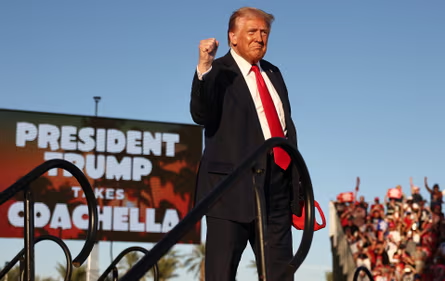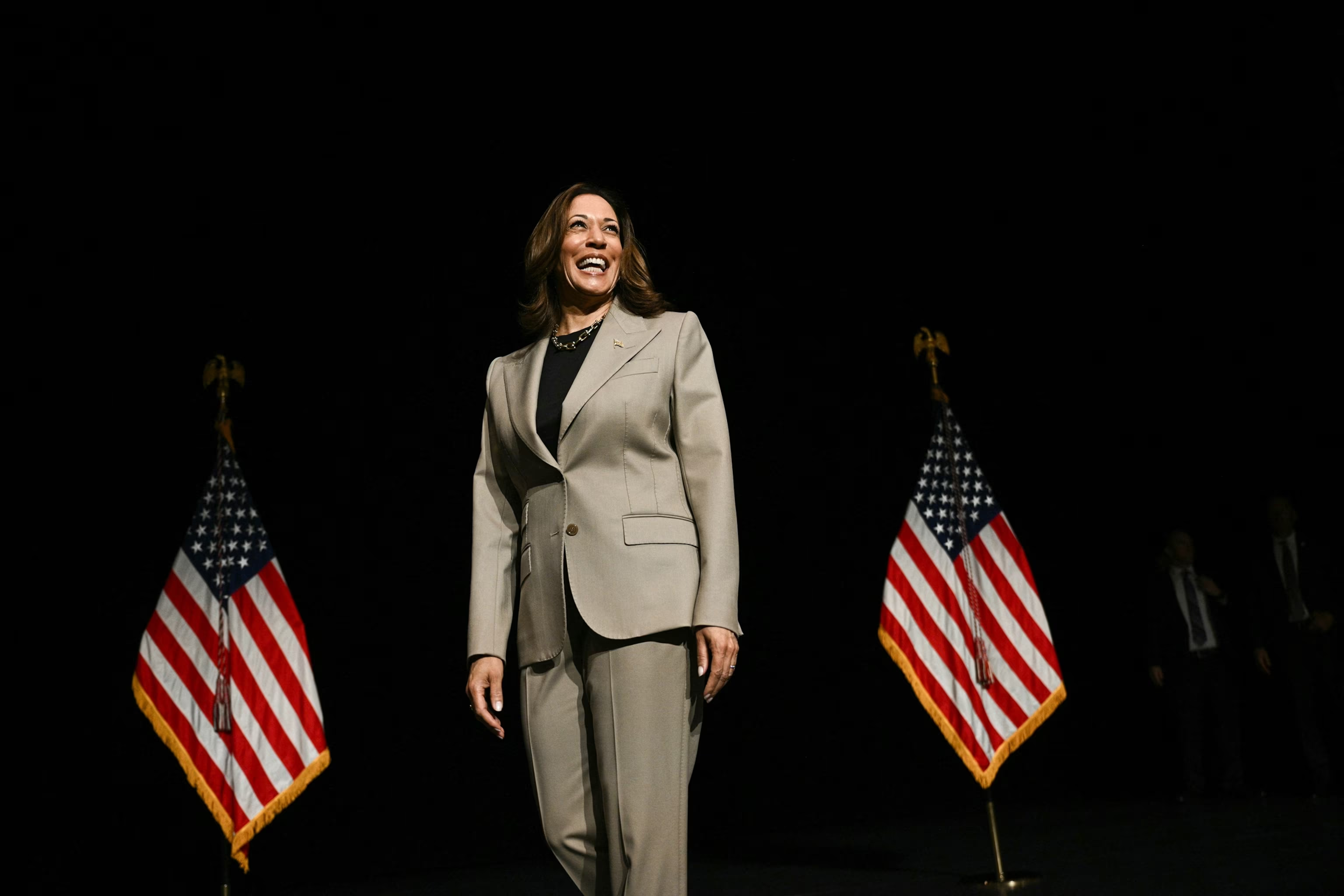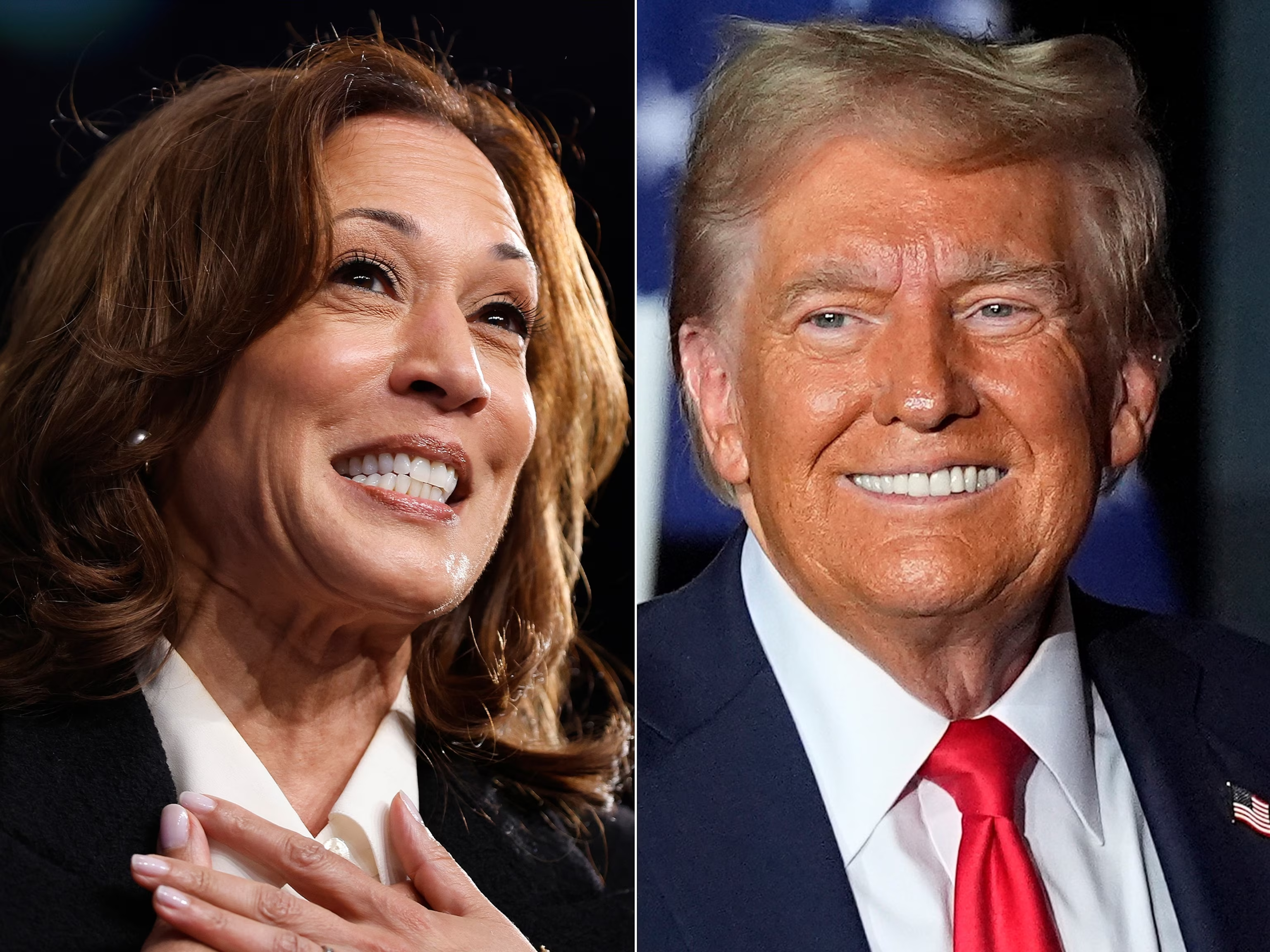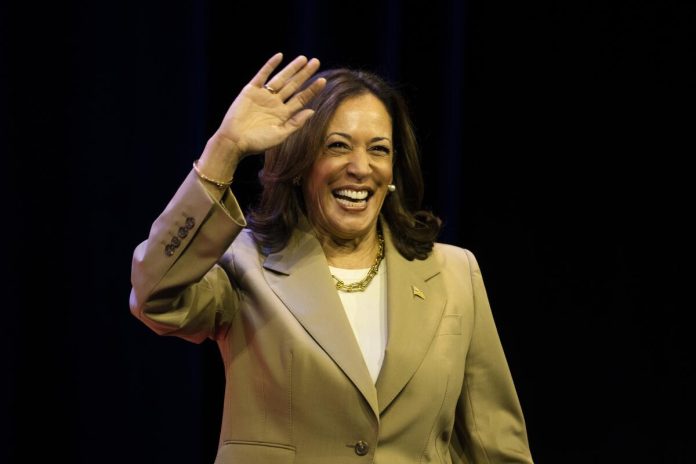In the lead-up to the November 5 presidential election, Democratic Vice President Kamala Harris holds a narrow lead over Republican former President Donald Trump, according to a recent Reuters/Ipsos poll. The poll, which concluded on Monday, shows Harris with 46% support compared to Trump’s 43%. This margin reflects a slight change from the previous week’s survey, which indicated a 45% to 42% advantage for Harris. The consistently close numbers underscore a highly competitive race, especially as both candidates approach the final two weeks of campaigning.
Voter sentiment appears grim, with many expressing dissatisfaction with the direction of the country. A significant majority, around 70%, believe that the cost of living is rising at an unsustainable pace, while 60% feel the economy is heading in the wrong direction. Additionally, 65% of respondents share similar concerns about immigration policy. These issues—along with threats to democracy—rank among the most pressing problems facing the nation.

When it comes to perceptions of candidate effectiveness on these critical issues, Trump seems to have an edge. The poll indicates that 46% of voters believe Trump has a better approach to economic issues, while 48% prefer his stance on immigration. Harris, on the other hand, excels in areas like political extremism and threats to democracy, where she leads Trump 42% to 35%. She also outperforms Trump on key social issues such as abortion and healthcare policy, highlighting a divide in voter priorities.
Despite her lead, Harris faces significant challenges. Even if her numbers remain favorable, winning the presidency will depend heavily on state-by-state Electoral College results rather than national polling. Historical precedents, such as the 2016 election where Trump won despite losing the popular vote to Hillary Clinton, emphasize the importance of battleground states. Current polling suggests that Harris and Trump are in a tight contest within these critical areas, making voter turnout essential.
A notable trend in this election cycle is the increased enthusiasm among voters, particularly Democrats. The poll found that 79% of registered voters—87% of Democrats and 84% of Republicans—expressed complete certainty about participating in the upcoming election. This level of commitment represents a rise from 74% in a similar poll conducted before the 2020 presidential election, indicating a more engaged electorate this time around.

Harris’s campaign gained momentum when she entered the race in July after President Joe Biden ended his reelection bid following a disappointing debate performance against Trump. Trump was initially perceived as the frontrunner, primarily due to his perceived strengths on economic issues amid a backdrop of high inflation. However, inflation has eased somewhat in recent months, potentially shifting voter perceptions as the election approaches.
Given the close nature of the race, both candidates are likely to focus heavily on mobilizing their bases to ensure voter turnout. Historical data from the U.S. Census Bureau and the Pew Research Center indicates that approximately two-thirds of U.S. adults participated in the 2020 election, marking the highest voter turnout in over a century. The current landscape suggests that maintaining this level of engagement will be crucial for both parties.
In terms of voter demographics, the balance appears fairly even, with about one-third of registered voters identifying as Democrats and another third as Republicans. The remainder consists of independents and those aligned with third parties, underscoring the necessity for candidates to reach beyond their traditional bases. Harris and Trump will need to appeal to these undecided voters to gain a decisive advantage in the election.

The Reuters/Ipsos poll included responses from 4,129 U.S. adults, with 3,481 identified as registered voters. Among likely voters—3,307 respondents—the poll shows Harris with a 3-percentage-point lead over Trump, at 48% to 45%. This slight advantage further illustrates the tightly contested nature of the race, with both candidates facing the imperative of securing every possible vote as election day draws near.
As the campaign heats up in these final weeks, the emphasis on voter mobilization will likely play a pivotal role in determining the next president. With issues of economic stability, immigration, and threats to democracy dominating voter concerns, both candidates will need to refine their messaging to resonate with an electorate eager for change. In this exceptionally close race, every voter will count, and both sides are aware that their strategies could tip the balance in a matter of days.




